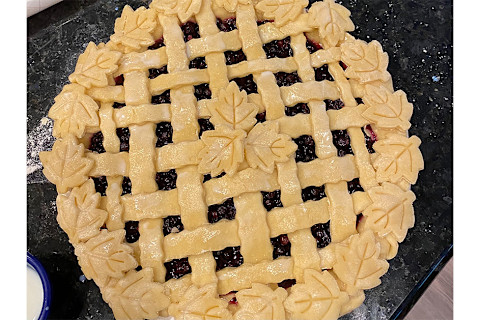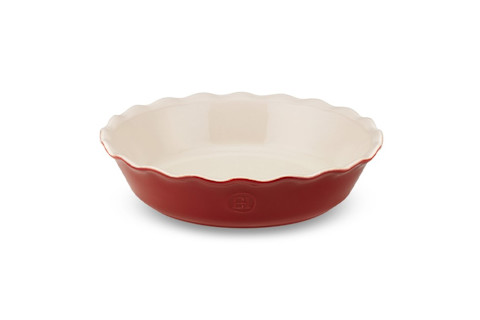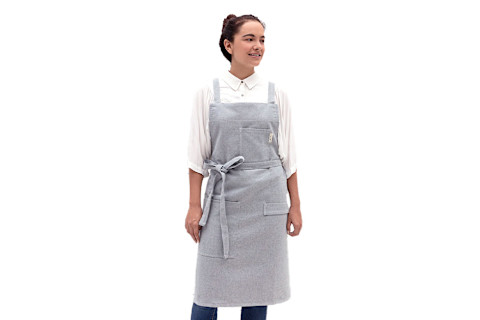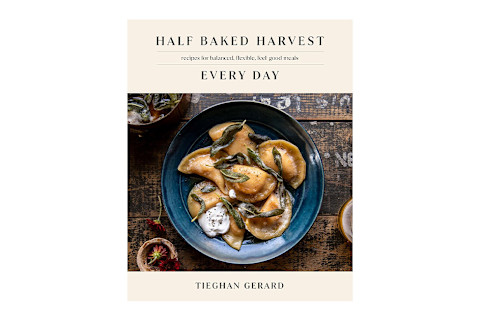The Mood Benefits Of Baking: Confidence, Connection & More

If you see me baking a pie at 7 a.m., you can guarantee I'm doing it for my mental health. This probably sounds really strange at first, but it's my truth: There are few things that pull me out of a dark headspace more than spending solo time baking.
I discovered the power of this hobby when I was struggling with depression and had next to no motivation to do anything positive with my day. One morning, in the midst of this difficult time, I woke up to bake a pie for a Friendsgiving celebration (a commitment I thought I'd regret when I first woke up). I decided to start early just to have the kitchen to myself, so there I was baking a pie while the sun was still rising.
During the baking process and after sharing my project with my friends, I felt fulfillment, accomplishment, and joy wash over me—feelings that had been far and few between in my life then. Time and time again, I elected for early morning baking to test the cause and effect to find that it really is a habit that never fails to boost my mood.
However, the reasons behind the emotional benefits of baking are quite complex and surprisingly research-backed. To come, why baking can bring you inspiration, relief, confidence, and overall foster a happier state of mind. Plus, my tips to make it the best experience possible.
Can baking benefit your mental well-being?
Research shows that cooking (baking included) can benefit your mental health1 when looking at it through a prominent well-being model created by psychologist, author, and director of the Positive Psychology Center at the University of Pennsylvania Martin Seligman, Ph.D.
The model is called PERMA2, which stands for Positive emotion, Engagement, Relationships, Meaning, and Accomplishment (PERMA).
Below, how these elements are at play in the process of baking.
Baking can trigger positive emotions
Positive emotions extend far beyond happiness—the long list includes feelings like optimism, contentment, inspiration, and pride—all of which can arise during the baking process.
Even before you bake, you may feel inspired when searching for a new recipe—finding something that sounds delicious in a cookbook, seeing photos of beautiful dishes online, or just getting excited about enjoying the dish afterward will surely spark positive emotions.
Baking can give your brain a break
This was the benefit I was most surprised by—baking actually does distract me from any negative thought loop I'm stuck in. This falls into the second category of the PERMA model, engagement, which Seligman defines as being one with an activity, experiencing a sense of time stopping, and the loss of self-consciousness during an activity.
Essentially, you're in a state of mental flow where you're immersed in the action of baking, which is challenging yet doable, and it requires attention but simultaneously doesn't cause stress if you plan it right (more on that in a bit).
Baking can bring social connection
Whether you share your baked good with those in your household or invite someone over to enjoy it with you, the act of baking can inspire a moment of connection.
Humans have been preparing and enjoying meals together for centuries, so it's no surprise that researchers theorize some of the pleasure derived from cooking stems from positive associations with social occasions3 and time spent with others.
This isn't to say you have to share your baked goods, but it is an excuse to invite over an old friend, bring your household together in one room, and it may even deliver outside praise of your dish that can increase your sense of pride in your project.
You can also try baking with a loved one if that fits your needs at the time. I learned my pie-making skills from time spent in the kitchen with my mother, which are memories I look back on with love. So, if you're feeling up for it, consider baking with someone you love every once in a while too.
Baking can add meaning to your life
Research shows that cooking brings more meaning to one's life4 when there is no sense of time constraint when meals are cooked with others, when food is made for others, and when more time is spent on preparing the dish—all of which make baking a great option for a meaningful act of food creation compared to something super quick and easy to whip up.
Even teenagers can benefit from this hobby. Surveys have shown that teens describe cooking as an opportunity to gain responsibility and independence.
Plus, providing someone's next meal (even if it is dessert) and creating a source of joy for someone else is certainly meaningful—one impact I found incredibly needed during hard times.
Baking can give you a sense of achievement

It's undeniable that baking a delicious, beautiful treat can make you feel accomplished. Especially if you're new to baking, testing out a unique recipe, or opting for a different method, you'll be challenged just enough to trigger accomplishment in your craft.
I love to bake in the morning for many reasons, but I have to say that getting this sense of accomplishment in the first half of my day sets me up for a better afternoon—almost like I already did something hard, so making the move to go exercise, get ready for the day, or show up for plans with friends seems a whole lot easier.
Plus, if you're into aesthetically pleasing dishes, just looking at the final product can make you feel proud of yourself. When I'm feeling self-conscious or insecure, a win like this means more than I thought it would when I first signed up to bake a pie.
How to create a therapeutic baking environment
You may be thinking that baking will only stress you out, and I'm not here to say it's a fit for everyone—however, there are ways to make your environment more conducive to a positive experience. Below, my best tips from years of practice using baking for my mental health:
- Give yourself enough time: A rushed baked good will only bring chaos to the kitchen, so give yourself more than enough time to take your recipe slowly and enjoy the process. I prefer to wake up early to bake because my house is quiet and I can kick off my day on a good note, but you may turn baking into a midday break, post-dinner activity, etc.
- Set the mood: I like to put on music or a podcast during my baking session. This makes it more enjoyable than silent baking, which, for some reason, can make it feel more like a chore than a free-time activity. Sometimes I even light a candle for extra ambience because why not?
- Go in with a plan: If there's one thing you should know, it's that freestyle baking can easily stress you out, so I'd start with a recipe and consider opting for the spontaneous route later on once you have your bearings. It's easier to see your plan, process, and success with a recipe, making it less daunting.
- Gather your ingredients beforehand: If you enjoy grocery shopping, perhaps grab your ingredients the same day you bake. If not, I'd suggest going beforehand to make this task seem just a bit easier when the time comes to start your project.
- Plan to share it: I find that making a plan to share my baked goods, whether it's inviting a friend over or telling those I live with to prepare for a treat, increases my motivation to complete the task and reward that comes after. That's just me, but don't feel pressure to commit to baking on a certain day if it will stress you out—do what's best for you.
- Document your experience: I still look back at photos of some of my favorite pies, cakes, and pastries with admiration and a sense of accomplishment, so I'd suggest documenting your finished product (both before it bakes and after). This can also help you see your own progress over time.
- Invest in your tools: You don't need anything special or expensive to have a fulfilling baking experience, period. That being said, a nice baking dish and some tools for decorating can make the process more fun. If you find you like baking and want to make it a frequent habit, it's worth investing in high-quality staples (some of my favorites below).
While baking has been my secret weapon for lifting me out of a low mood, it never has nor will it ever replace the basic pillars of mental health support including therapy, social connection, healthy eating, and regular exercise.
Instead, I see it as an extra, yet powerful, way to spend my free time that I know will lift my spirits when I need it most. I'll admit, enjoying a piece of freshly baked blackberry pie doesn't hurt my mood either.
Shop baking accessories
The takeaway
Baking has the power to spark inspiration and social connection while providing a sense of accomplishment with your finished product—which is why it's my favorite activity to call upon when I need a mood boost. Here, more hobbies to consider trying out if you're in an inspiration rut.




